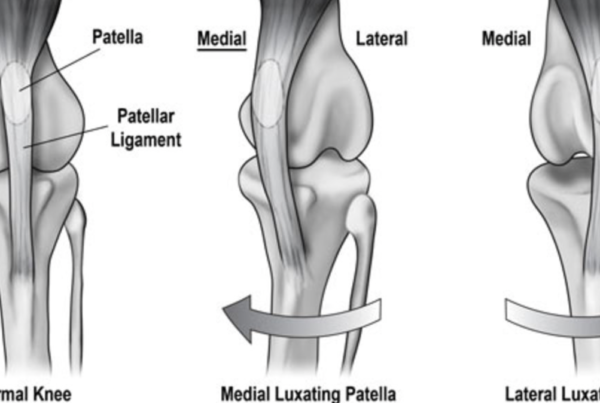WHAT IS CANINE CARDIOVASCULAR DISEASE?
Congenital abnormalities of the cardiovascular system are defects that are present at birth. They can occur as a result of genetic defects, environmental conditions, infections, poisoning, medication taken by the mother, or poor maternal nutrition. In some cases, it is a combination of these factors that causes the defect. For several defects, an inherited basis is suspected based on breed and breeding studies. However, some studies have suggested that fewer than 1% of dogs are affected by congenital heart disease.
In addition to the congenital heart defects, many other cardiovascular disorders have been shown, or are suspected, to have a genetic basis. Diseases such as hypertrophic cardiomyopathy, dilated cardiomyopathy, and degenerative valve disease of small breeds of dogs may have a significant genetic component.
It is important to detect a congenital heart defect as early as possible. Certain defects can be corrected with surgery, and treatment should be performed before the defect leads to congestive heart failure or irreversible heart damage. If the defect is discovered in a recently purchased dog, you may be able to return it for a refund. Pets with congenital heart defects are likely to die prematurely, causing emotional distress. Early detection also allows owners to avoid breeding dogs with genetic defects and prevent continuing genetic defects in breeding lines.
HOW TO COMPLETE A CARDIAC EVALUATION:
A list of board-certified cardiologists can be found on the web site: www.acvim.org
Note: It is recommended on the OFA website that ANY licensed veterinarian with experience perform auscultation (listening with a stethoscope) FIRST, and then only if a murmur is detected, do you need to go on to a cardiac specialist to obtain definitive diagnosis. If no murmur is present at auscultation, no need for a trip to a specialist! See below for more info.
PRELIMINARY EVALUATION:
Dogs under 12 months of age can be evaluated for the owner’s information. The most opportune time to gather this data is at 8–10 weeks of age, prior to the puppy’s release to the new owner.
TIMING:
A breed registry number will be issued for any dog found to be normal for cardiac disease at 12 months of age or older. Since acquired heart disease may develop later, these evaluations are valid for 1 year from the time of examination and annual exams are recommended.
EXAMINATION SPECIFICS:
The exam is based on auscultation (listening with a stethoscope).
The clinical examination should be performed by an individual with advanced training in cardiac diagnosis” (Note: This doesn’t have to be a board certified specialist; your veterinarian may be able to do this!)…”It is recommended that cardiac auscultation (listening with a stethoscope) be the primary screening method for initial identification of Congenital Heart Disease (CHD) and the initial classification of dogs.
IF a murmur is detected, “definitive diagnosis of Congenital Heart Disease (CHD) usually involves one or more of the following methods:
– Echocardiography with Doppler studies
– Cardiac catheterization with angiocardiography
(Note: ONLY IF A MURMUR IS DETECTED will advanced testing via the methods listed here need to be done by a board-certified Cardiologist. Use the link above to find a specialist near you.)
All quotations taken from:
Merck Vet Manual
OFA Website: Cardiac Evaluation






